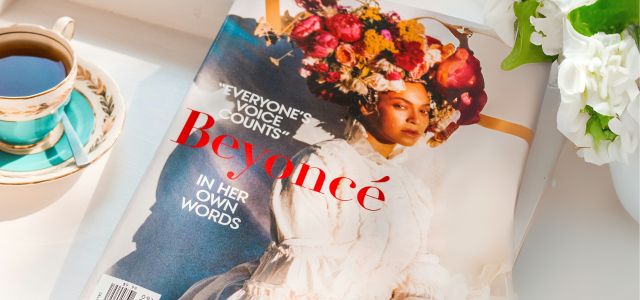After 12 long years of legal back-and-forth, Beyoncé and Jay-Z (‘the Carters’ – their real last name) are once again asking federal regulators to register their daughter Blue Ivy Carter’s name as a trademark.
Shortly after Blue Ivy was born in January 2012, Beyoncé’s company, BGK Trademark Holdings LLC (BGK), filed an application with the United States Patent and Trademark Office USPTO (USPTO) to secure her distinctive name as a trademark. Jay-Z told Vanity Fair that the reason they filed a trademark for Blue Ivy’s name was because: “People wanted to make products based on our child’s name, and you don’t want anybody trying to benefit off your baby’s name.”
In today’s world, where profiting off famous identities has become common, fortunately, the USPTO has safeguards in place to reject “opportunistic” applications. The USPTO can deny applications to register a trademark if they detect a false connection to a well-known person or institution. If the application includes someone’s actual name, they require written consent from that individual. This consent rule was recently upheld in the “TRUMP TOO SMALL” case (Vidal v. Elster), where the court held that famous names can’t be used without express permission. Even if the Carter’s never attempted to trademark their child’s name, they already had certain protection against opportunistic trademark applications trying to exploit their child’s name.
Over the past 12 years, there have been two roadblocks to the Carter’s BLUE IVY trademark aspirations. First, Veronica Morales owns a lifestyle event planning business under the name ‘Blue Ivy.’ She owns BLUE IVY as a registered trademark and initially objected to Beyonce’s efforts to register BLUE IVY CARTER. However, in 2020, a USPTO tribunal shut down Morales’ complaints, deciding that the services offered by Morales and Beyoncé’s team were “so dissimilar that confusion is unlikely.” This was the ruling that the Carter family was hoping for. However, her BGK attorneys did not file a Statement of Use or a Request to Extend Time to File a Statement of Use within the time required which ultimately led to the abandonment of the application.
Fast forward to November 2023, and Beyoncé’s legal team refiled the trademark application. A trademark examiner issued a rejection that the mark was “confusingly similar” to a Wisconsin clothing store’s ‘Blue Ivy’ logo, which has been registered since 2011. When an examining attorney does this, they determine whether there is a likelihood of confusion between the trademark filing for the specified goods or services and a registered trademark for related goods or services which would likely lead to consumer confusion regarding the connection between the marks.
Beyonce’s attorneys challenged the rejection stating, “the consuming public would associate her with a trademark bearing her name” and “the parties each exist and thrive in their own separate worlds and can continue doing so into the future.” This matter is currently pending. However, the matter could be resolved through the use of a coexistence agreement. A coexistence agreement is a legally binding agreement between two parties that allows both to use similar or identical trademarks under certain conditions without infringing on each other’s rights.
This raises an interesting question. Should high-profile public figures have a different standard when it comes to trademarks?
Public figures, by the very nature of their fame, often command significant recognition and influence. There could be an argument where some people are so famous, that consumers will think of them even if they are not associated with the mark. On the other hand, for small-level shops and entrepreneurs around the country, it would be extremely difficult to get to that level of recognition. That is why in trademark law there is no special treatment. If you’re a global icon or a local business owner, the standards remain the same, you must prove that your mark is sufficiently different than preexisting trademarks and that it serves as a clear identifier for your goods or services.
Whether or not the Carters ultimately secure BLUE IVY CARTER as a registered trademark, raises a fascinating debate on whether public figures should have different considerations due to their significant influence and notoriety. Regardless of the outcome, the trademark system remains rooted in its mission to protect consumers from confusion and ensure a fair playing field for all.

Written by Christopher D'Avanzo
Associate, The McHattie Law Firm, LLC
You may also like…
Takeaways from J.M. Smucker Company v. Trader Joe’s Company for brand owners regarding trade dress enforcement
Dupes and generic brands, which were once seen as inferior alternatives to name-brand products, have become more...
UEFA partners with Alliance for Creativity and Entertainment to enhance global anti-piracy strategy
October 21, 2025 - The Union of European Football Associations (UEFA) has officially joined the Alliance for...
EUIPO and UANIPIO welcome the integration of Ukraine’s trademarks into TMview
The European Union Intellectual Property Office (EUIPO) and the Ukrainian National Office for Intellectual Property...
Contact us to write for out Newsletter














